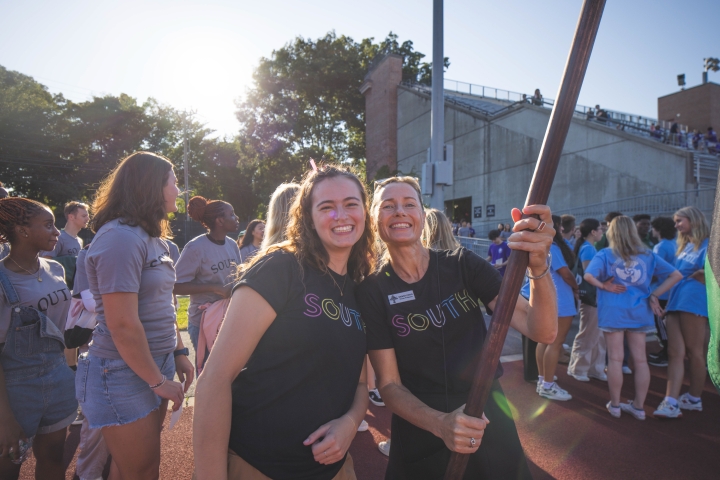As Dartmouth creates more undergraduate housing in the coming years, the house community system will give students more options about where they might live in their junior and senior years.
The change, part of the housing vision announced in September by President Sian Leah Beilock, will give those students additional options to live in a residence hall in their house community or in an “all-house” hall, among other choices. This will allow for more flexibility for living with friends who are not members of the same house community while maintaining existing connections within a house community.
Since its launch in fall 2016, Dartmouth’s house system, part of the Office of Residential Life, has become an integral part of the undergraduate student experience. Undergraduates are assigned to a house community before they arrive on campus, and their house affiliation provides important continuity as students navigate the on- and off-campus terms of the D-Plan throughout their four years and beyond Dartmouth.
The house communities—Allen House, East Wheelock House, North Park House, School House, South House, and West House—are co-led by a house professor and a live-in professional staff member of the Office of Residential Education, in addition to faculty fellows, program coordinators, graduate student fellows, and a team of undergraduate advisors.
The current system calls for students to live in residence halls that are affiliated with their house community, and they have the option to live in apartments, living learning communities, or Greek houses, which are considered all-house living environments.
Starting in the fall of 2026, as more undergraduate housing gets renewed around campus and built on West Wheelock Street, options for juniors and seniors to live in all-house living environments will expand. Ripley, Woodward, and Smith Halls are designated as all-house residences for the 2024-2025 academic year and will continue through the fall of 2026. Residential Life will also identify a small portion of residence hall spaces for all-house living starting in the fall of 2026, expanding options for students.
“We’ve seen that the house communities are an important resource in creating community at Dartmouth, helping students develop friendships and a sense of belonging from the start. We recognize that they offer familiarity and continuity for some students, while others may seek more flexibility in their housing options,” says Eric Ramsey, co-interim dean of the College.
The Office of Residential Life is also evaluating a pilot house transfer process where students may apply to transfer houses. Eligible students will receive details from the undergraduate housing staff when this option becomes available.
The Residential Life team will also continue to connect living learning communities with house communities.
As Dartmouth has enhanced its global reach, house communities reinforce belonging and intellectual engagement, making the undergraduate experience unique. In addition, faculty engagement with house communities outside of the classroom offers students new and different opportunities to think, learn, and explore together.
“We have learned a lot in the first eight years of the house system about how effective and essential it is for students as they establish themselves at Dartmouth, and also what needs to be done to continue to strengthen the undergraduate living experience,” says Stacey Millard, associate dean for Residential Life.

